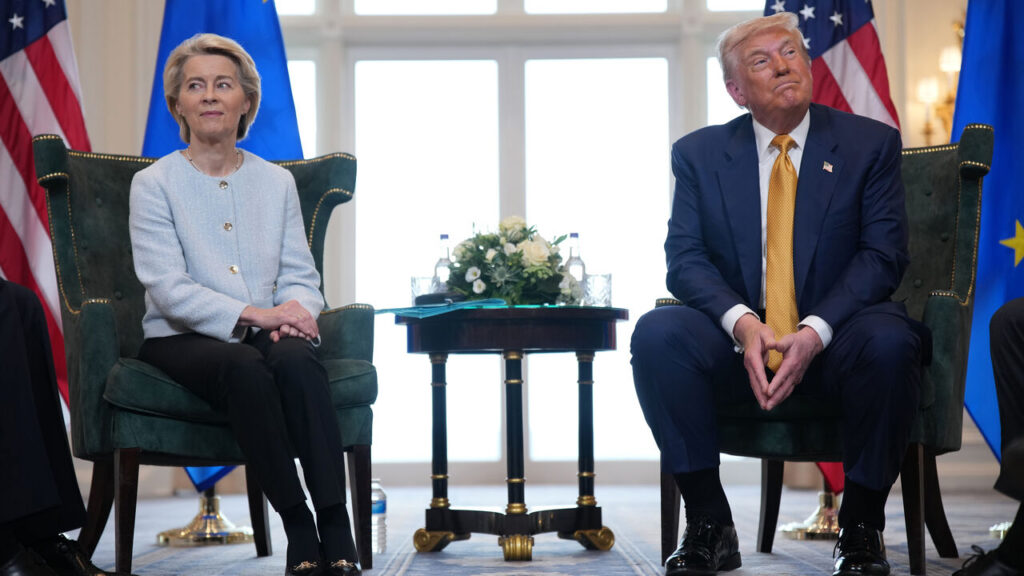On July 30th, the French President Emmanuel Macron made a striking statement that has sparked conversations about power dynamics in international relations. Macron’s words, “To be free, you need to be feared,” underscored a critical view on how countries interact within the global landscape, particularly emphasizing the need for a position of strength. His remarks came shortly after a controversial trade agreement was brokered between Ursula von der Leyen, the European Commission president, and former U.S. President Donald Trump. The negotiation took place at Trump’s Turnberry golf course in Scotland, a setting that often symbolizes his personal business interests.
The agreement reached was anything but balanced, as it imposed increased tariffs on European goods without any reciprocal measures from the United States. This one-sided nature of the trade deal alarmed political leaders and media outlets across Europe, leading to sharp criticism of the EU’s handling of negotiations with the Trump administration. It became clear that European leaders felt a mix of anger and concern over the apparent inability to stand firm against what was perceived as American unilateralism. Many argued that the agreement represented a capitulation to the whims of a powerful nation rather than a fair and equitable trade partnership.
Despite the outcry, the European Union (EU) faced a complex set of challenges that shaped its decision-making process. There was a significant underlying rationale for what some might label as “faint-heartedness.” The EU needed to maintain an open line of communication with Trump in order to keep the United States engaged in European affairs, particularly at a time when transatlantic relations were under strain. By making concessions, the EU aimed to safeguard its own economic interests while preventing further escalation of tensions with the Trump administration.
Macron’s comments suggest an understanding of this delicate balancing act. He seemed to recognize that to secure genuine autonomy and influence on the global stage, the EU would have to project a certain level of authority and, perhaps, instill a degree of fear in potential adversaries. Fear, as he articulated, is intertwined with the capacity to negotiate equitably and enforce one’s interests. By underscoring that “we were not feared enough,” Macron identified a weakness in the EU’s collective bargaining approach that may require re-evaluation in future negotiations.
The scenario illustrates how the dynamics of power and fear operate in international relations. The EU, a significant political and economic entity, finds itself struggling to maintain its standing when faced with dominant superpowers. As the geopolitical landscape evolves, the need for the EU to adopt a more assertive stance in negotiations might become increasingly apparent. A fear of being sidelined or disregarded in global discussions propels lawmakers and leaders to reconsider their strategies in order to preserve their influence.
Ultimately, while this trade deal may have been pragmatic in the short term—allowing the EU to minimize potential economic fallout—it raises larger questions about the future of EU-U.S. relations. As distinct political personalities lead both sides, cooperative engagement versus competitive posturing will be pivotal in defining the next steps. Leaders like Macron will likely continue to push for a framework where the EU not only engages but also commands respect and strategic leverage in the global arena.
In this context, the words of Macron serve as a clarion call for unity and strength among EU member states, urging them to rethink the ways they assert themselves on the international front. Given that economics and politics are inherently entwined, how the EU navigates this complex landscape in the coming months and years will shape its global identity and influence. If Europe hopes to be respected and indeed feared, it may need to fortify its negotiating power and assert its interests more decisively in the face of dominant actors like the United States.









